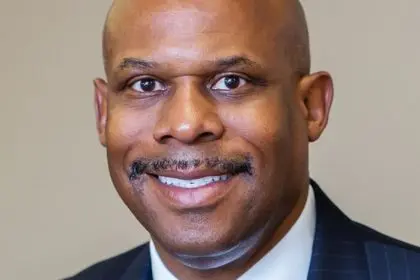The National Association of Black Accountants faced a devastating blow to its cornerstone recruiting event as corporate sponsors fled amid mounting political pressure against diversity initiatives. The organization’s annual gathering in Las Vegas from June 3-6 became a stark symbol of how the current political climate is reshaping corporate America’s approach to diversity, equity and inclusion programs.
What should have been a celebration of professional achievement and opportunity instead highlighted the precarious position of organizations dedicated to advancing underrepresented communities in high-profile industries. The event, which traditionally serves as a vital pipeline connecting Black accounting professionals with major firms and financial institutions, saw its foundation shaken as longtime supporters distanced themselves from DEI-focused programming.
Corporate exodus leaves lasting impact
The withdrawal of major sponsors sent shockwaves through the accounting community. Companies that had previously been stalwarts of the organization’s mission suddenly became conspicuously absent from the Las Vegas gathering. American Express, Meta Platforms and Walt Disney were among the notable corporations that chose not to participate this year, marking a dramatic shift from previous events.
This corporate retreat reflects a broader trend sweeping across American businesses as they navigate an increasingly polarized political landscape. The companies that once proudly displayed their commitment to diversity through sponsorships and partnerships now find themselves weighing the potential backlash against their continued support for such initiatives.
The absence of these major players created both financial and symbolic challenges for the organization. Beyond the immediate funding shortfall, the withdrawal sent a chilling message to attendees about corporate America’s shifting priorities and commitment to diversity efforts.
Attendance plummets as uncertainty grows
The ripple effects of reduced corporate support became immediately apparent in attendance figures. Where nearly 4,000 students and industry professionals had gathered the previous year, this year’s event saw significantly diminished participation. The decrease in attendance represented more than just numbers – it symbolized lost opportunities for mentorship, networking and career advancement for Black professionals in accounting.
Students who had planned to attend found fewer resources available, while established professionals witnessed the contraction of a vital professional network. The reduced participation also meant fewer success stories and role models visible to the next generation of Black accountants considering their career paths.
The atmosphere at the event itself reflected this uncertainty. Even Deloitte, which maintained its position as title sponsor, adopted a notably cautious approach. The firm declined to make key panelists available for interviews and restricted media access to its sponsored sessions, indicating the delicate balance companies are trying to strike in the current environment.
Systemic challenges in accounting profession
The struggles facing the National Association of Black Accountants illuminate deeper structural issues within the accounting industry. The profession remains overwhelmingly white, with Black professionals representing just 2% of partners and Certified Public Accountants. This stark underrepresentation has persisted for decades despite various diversity initiatives and recruitment efforts.
Guylaine Saint Juste, who leads the organization as CEO, has witnessed firsthand how political developments have complicated efforts to address this disparity. The challenge of recruiting minorities into accounting has intensified as the broader conversation around DEI initiatives has become increasingly contentious.
The timing of this corporate retreat is particularly problematic given the accounting industry’s existing workforce challenges. Many firms are already grappling with employee shortages and recruitment difficulties. The reduced focus on diversity initiatives could exacerbate these problems by limiting the talent pipeline from underrepresented communities.
Industry leaders sound alarm
Prominent figures within the accounting industry have expressed serious concerns about the long-term implications of reduced DEI support. KPMG’s leadership has characterized the situation as a developing crisis that could have far-reaching consequences for both individual firms and the profession as a whole.
The concern extends beyond immediate recruitment challenges to fundamental questions about the industry’s future composition and capabilities. As businesses become increasingly global and diverse, accounting firms risk falling behind if they cannot attract and retain talent from all backgrounds.
Paul Knopp, who serves as CEO of KPMG, has been particularly vocal about the potential ramifications. His warnings about a brewing crisis reflect anxiety shared by many industry leaders who recognize that diversity isn’t just a moral imperative but a business necessity in today’s competitive landscape.
Broader cultural retreat from diversity
The challenges facing the National Association of Black Accountants represent just one facet of a wider pullback from diversity-focused initiatives across corporate America. Similar patterns have emerged in various industries and communities as organizations reassess their commitment to DEI programming.
Denver’s Juneteenth Music Festival, one of the largest celebrations of its kind, experienced similar corporate sponsor withdrawals. Companies that had previously supported the event chose not to participate, forcing organizers to scramble for alternative funding sources. The festival’s struggles mirror those of the accounting organization in demonstrating how political pressure is reshaping corporate philanthropy and community engagement.
Colorado Springs faced comparable challenges in securing funding for its Juneteenth celebration, ultimately requiring organizers to change venues due to decreased corporate backing. These examples illustrate how the impact extends far beyond professional organizations to community celebrations and cultural events that rely on corporate support.
Economic implications of diversity retreat
The withdrawal of corporate support from diversity-focused events and organizations carries significant economic implications beyond the immediate funding shortfalls. These initiatives often serve as crucial networking opportunities that facilitate business relationships, job placements and professional advancement.
When corporations reduce their participation in such events, they potentially limit their own access to diverse talent pools and innovative perspectives. The economic benefits of diversity – including improved decision-making, increased innovation and better market understanding – become harder to realize when companies distance themselves from diversity-focused programming.
For the accounting profession specifically, the retreat from diversity initiatives could worsen existing talent shortages and limit firms’ ability to serve an increasingly diverse client base effectively. The long-term costs of this approach may far exceed any short-term political benefits companies perceive.
Future implications for professional development
The uncertainty surrounding corporate support for diversity initiatives creates challenges for career planning and professional development within underrepresented communities. Young professionals may find fewer mentorship opportunities, reduced networking possibilities and limited access to career advancement resources.
Educational institutions that have relied on corporate partnerships to provide opportunities for their diverse student populations may need to reassess their programming and find alternative support mechanisms. The impact could be particularly severe for historically Black colleges and universities that have developed strong relationships with corporate partners through diversity initiatives.
The accounting profession’s ability to attract and retain diverse talent will likely depend on how individual firms and organizations navigate this challenging environment while maintaining their commitment to inclusive practices.
















